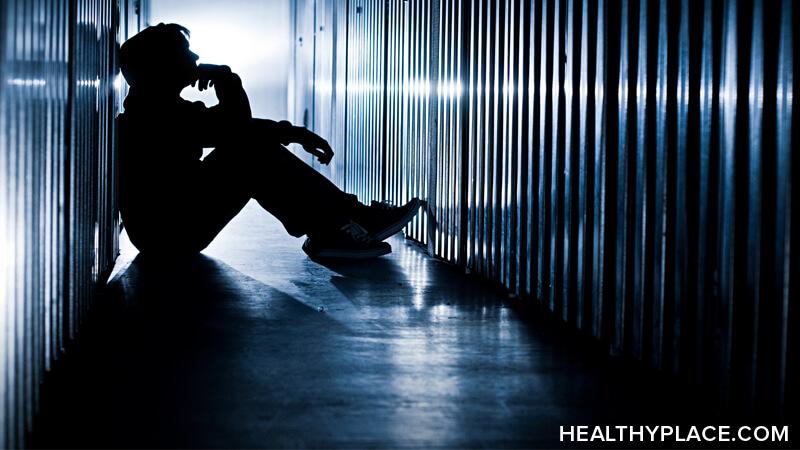Gen Z Is More Aware of Mental Health than Other Generations

Generation Z (or Gen Z or Zoomers), the generation that succeeds Generation Y (or Gen Y or millennials), is currently more aware of mental health than any other generation. While this sounds like good news, there are negative aspects as well. Let's take a look at Generation Z's relationship to mental health.
Who Is Generation Z?
According to VeryWellMind,
"Generation Z refers to the generation born roughly between the years 1997 and 2012. They are the first generation to be raised completely with the Internet and smartphones, and have grown up with a very different experience of the world than previous generations. They have grown up in tumultuous times that have included multiple stressors such as 9/11, school shootings, climate change, and political unrest."1
Gen Z and Mental Health Awareness
In my opinion, millennials helped pave the way for Gen Z's positive attitude toward mental health. Gen Y has contributed a lot towards normalizing conversations around mental health, particularly on social media. Gen Z carried the torch forward by communicating about mental health issues in the physical world. The catch is that Gen Z has a long list of reasons to be mentally unwell. Global management consulting firm McKinsey & Company says:
"A series of consumer surveys and reports conducted by McKinsey indicate stark differences among generations, with Gen Z reporting the least positive life outlook, including lower levels of emotional and social well-being than older generations. One in four Gen Z respondents reported feeling more emotionally distressed (25 percent), almost double the level reported by millennial and Gen X respondents (13 percent each). And the Covid-19 pandemic has only amplified this challenge."2
Gen Z Is Not Seeking Professional Mental Health Help
With increased mental health awareness, one may conclude that Zoomers are going to therapy more than any other generation. Unfortunately, due to issues like lack of access to behavioral healthcare and poverty, I have seen Zoomers turning to social media apps like TikTok and Reddit for peer support. They are following therapists on Instagram for mental health support instead of consulting them. Research by McKinsey & Company says:
"Almost one in four Gen Zers reported that it is extremely or very challenging to get help during a behavioral-health crisis. This lack of access is very concerning for a generation two to three times more likely to report seeking treatment in the past 12 months for suicidal ideation or attempted suicide, than any other generation."2
How Can Older Generations Help?
Many of the issues that Gen Z is dealing with are systemic and cannot be changed by the general public. However, there are two things we can do as individuals to help the mental health of Gen Z.
First, as parents, teachers, older siblings, and friends, we can spend quality time with Zoomers. We must listen to them without any bias or judgment. For example, if a teenager tells you they have depression, do not mock or downplay their self-diagnosis. Keep an open mind, hear them out, and ask them how you can help.
Second, while Gen Z uses social media to stay connected with friends and cope with mental health issues, too much screen time causes and worsens mental health problems. According to McKinsey & Company,
"Studies of young adults and their social media use have shown an inverse relationship between screen time and psychological well-being, with higher utilization associated with poor well-being. Other research indicates the nature of the relationship individuals have with social media can have a greater impact on their mental health than time spent."3
It is, therefore, crucial to teach Gen Z to self-regulate the amount of time they spend staring at a screen. And just as importantly, we must help them distinguish between real and fake friends and social media accounts and identify and stand up to online bullying and harassment.
Sources
-
Cuncic, A. (2021, March 25). Why Gen Z Is More Open to Talking About Their Mental Health. Verywell Mind. https://www.verywellmind.com/why-gen-z-is-more-open-to-talking-about-their-mental-health-5104730
-
Coe, E., Cordina, J., Enomoto, K., Jacobson, R., Mei, S., & Seshan, N. (2022, January 14). Addressing the unprecedented behavioral-health challenges facing Generation Z. McKinsey & Company. https://www.mckinsey.com/industries/healthcare/our-insights/addressing-the-unprecedented-behavioral-health-challenges-facing-generation-z
-
Coe, E., Doy, A., Enomoto, K., & Healy, C. (2023, April 28). Gen Z mental health: The impact of tech and social media. McKinsey & Company. https://www.mckinsey.com/mhi/our-insights/gen-z-mental-health-the-impact-of-tech-and-social-media
APA Reference
Shaikh, M.
(2023, May 10). Gen Z Is More Aware of Mental Health than Other Generations, HealthyPlace. Retrieved
on 2026, January 12 from https://www.healthyplace.com/blogs/mentalhealthforthedigitalgeneration/2023/5/gen-z-is-more-aware-of-mental-health-than-other-generations
Author: Mahevash Shaikh
We really have it rough. Thanks for trying to help us instead of discounting our issues like a certain generation who created many problems and refused to take any accountability.
You are most welcome. I think Gen Z is doing the best they can in these dystopian times.
